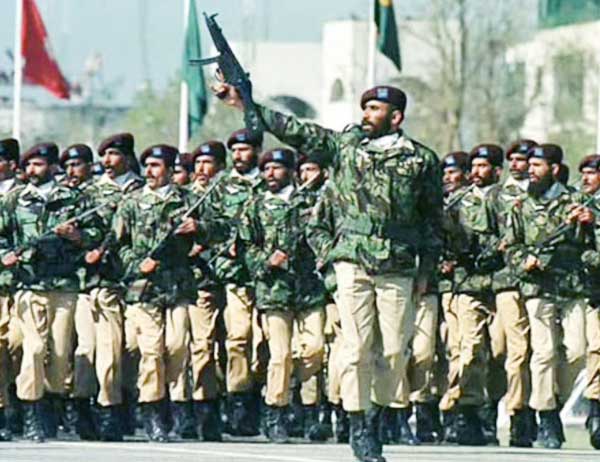IDR Blog
Pak Army Chief’s selection issue: Does it mean President’s ouster?
The selection of a new army chief after the retirement of General Bajwa on 29 November was already a political issue in Pakistan; now it has been given a legal slant as well. More confusion and uncertainty have gripped the decision-makers in the Prime Minister’s office.
In the meanwhile, former Prime Minister Imran Khan said in an appointment that the government was delaying the decision of naming the next COAS because it was avoiding the selection of an incorruptible incumbent with a strong nationalist outlook. He added that the appointment of a COAS with these credentials would mean setting up an inquiry into the rampant corruption that has resulted in amassing enormous wealth and properties by some of the top army officers including the outgoing COAS.
It has to be recalled that allegations against General Bajwa of having grabbed billions of rupees worth of properties not only in Pakistan but also in several foreign countries in the names of his close family members have been voiced by certain knowledgeable circles in Pakistan. Neither the government nor the army has contradicted the allegation because the revelations are so detailed and pinpointed that refutation can do more harm than good.
In a tweet, the GHQ said it had completed the summary and forwarded the same to ‘ Defence Ministry, which also confirmed that it had forwarded it to the Prime Minister’s office. This means that the requisite procedure is completed and, reportedly, the antecedents of six three-star Generals are under consideration.
It means that now the matter is at a crucial and final stage. Defence Minister Asif Khawaja told the press reporters that the announcement could take place before the Prime Minister proceeds on a visit to Ankara on 25 November. Sources at GHQ say that e of the name of the next COAS is not advisable because the functioning COAS must enjoy complete freedom and authority till the last day of his service in the interests of the country.
Politics apart, observers are now focusing on the legalities of making the appointment to the most sensitive office of the COAS. Here, the Head of the State comes into focus. A broad view of the scenario suggests that the President “could still greatly complicate the appointment process,” according to an opinion published by the Dawn on November 23.
The frustrating question is who has the authority to pronounce the last word; the president, the prime minister, the cabinet or the retiring COAS? The constitutional provisions are overlapping as well as misleading. There is much scope for serious variations in the interpretation of constitutional law. For example, Advocate Usama Khawar Ghumman believes “Islamabad should have initiated the appointment process much earlier, leaving no chance for the president to potentially thwart its move.” In other words, he means to say that the President may thwart the decision of the Prime Minister. Although Ghumman does not give the precise reason why the President would “thwart” the appointment, the stakeholders know about the President’s pro-Imran proclivity. The Prime Minister and his party would not want to take any risk. Advocate Ghumman argues that the law does not require the prime minister to wait for a summary from GHQ to initiate the appointment process.
However, Ahmad Bilal Mehboob, a political analyst who heads the Pakistan Institute of Legislative Development and Transparency (Pildat), disagrees with the view of Advocate Ghumman. Defending the government for not disclosing the name of the new incumbent he contends that the outgoing chiefs usually do not wish for the early announcement of their successors so that they may exercise full powers till the last day of their tenure.
This may be expedient in given circumstances. A government has the right of taking a serious view of prevailing circumstances but the practice of announcing the new incumbent in good time has usually been the case with the previous governments in Pakistan.
Pak Constitution allows the president to sit on any summary sent to him by the prime minister for 15 days, and then simply return it for reconsideration. The prime minister can resend the same, unchanged summary back to the president, and this time it will be deemed approved even if not u by the president — however, even for a to happen, the president can continue to sit a
The ticklish question is whether the president will do that. This question can be answered best only when we analyze the powers and jurisdictions of the head of government and the head of state under the Constitution. The unresolved point is whether the president should appoint the army chief at his discretion, or in consultation with the prime minister, or be bound to whatever ‘advice’ the prime minister gives him under Article 48(1) of the Constitution.
One of the problems of Pakistani politics is that the constitution is frequently amended not as per the necessity of national interest but for catering to individual interests. It is a subjective amendment that makes things complicated. This is also true in the case of Article 243 of the 1973 Constitution, which deals with the matter, “has been amended on at least five separate occasions as dictators and civilian governments tussled over who should get to decide this key appointment.”
Article 48(1), says, “in the exercise of his functions, the president shall act [on and] by the advice of the cabinet [or the Prime Minister]”. This upholds the supremacy of the Prime Minister in nominating the new army chief.
However, in another twist, the rules say “The appointment of, and above the rank of, a lieutenant general in the army and equivalent rank in the other defence services will be made by the prime minister in consultation with the president.”
Keeping in view the prevailing uncommon political scenario in the country and the severe constraints it generates for the Prime Minister on the one hand and the President’s covert liking for the former Prime Minister on the other, the entire episode has all the symptoms to grow into a real mess.
If Defence Minister Khawaja Asif’s statement is taken seriously, the inference is that the Prime Minister has made the final choice which he is likely to disclose in a day at the most. The President will probably send it back for review and that would draw the lines between the presidential office and that of the prime.
Prime Minister cannot wait to prod the President to accept his nominated COAS. This is not the time for the government of Shahbaz Sharif to open Pandora’s box. The President must go to let the government survive the storm. The President must go to take the air out of the Imran balloon. Pakistan has to move forward; individuals do not matter if they do not fall in line.





